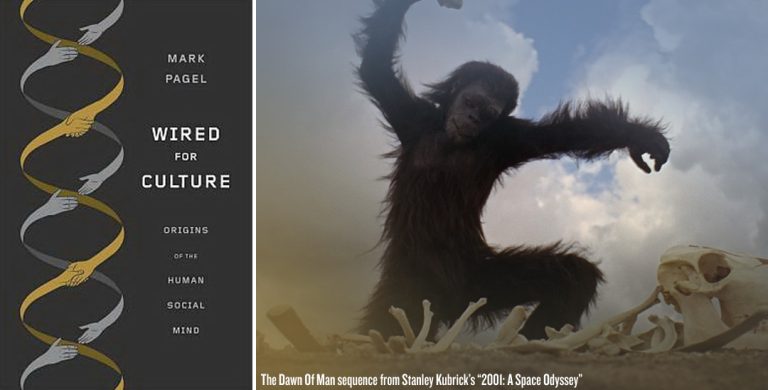New Scientist recently profiled the latest book from evolutionary biologist Mark Pagel entitled Wired for Culture which builds a brilliant argument that human evolution’s most important driving forces are social structures, and less our genetic impetus to simply stay alive. As David Sloan Wilson writes in his New Scientist review: “In ‘Wired for Culture’ he frames cultural development in the language of Richard Dawkins‘s selfish gene theory, in which genes are replicators that build individual bodies as vehicles for their own survival. Dawkins famously coined the term ‘meme’ as the cultural analogue of a gene. Pagel’s argument goes one step further. Memes, he says, have built vehicles around themselves made up of groups of people. We live inside ‘cultural survival vehicles’ that allow us to collectively survive and reproduce in any given environment. Pagel argues that there are thousands of such vehicles, each adapted to different environments, exemplified by humanity’s wealth of languages. Genetically we remain a single species, but culturally we are worlds apart, comparable to dinosaurs, birds and mammals. ‘Wired for Culture’ explores the implications of the emerging consensus across the breadth of human experience, from religion, the arts and economics, through consciousness, deception, conflict and the very idea of truth.” A fascinating study and an absolute must-read; simply head over to New Scientist. You can pick up your own copy of Mark Pagel’s Wired For Culture, as well as read an excerpt, on Amazon.
Forget Survival Of The Fittest, Evolutionary Biologist Argues It’s Survival Of The Most Cultured
Brent Lambert
Writer, editor, and founder of FEELguide. I have written over 5,000 articles covering many topics including: travel, design, movies, music, politics, psychology, neuroscience, business, religion and spirituality, philosophy, pop culture, the universe, and so much more. I also work as an illustrator and set designer in the movie industry, and you can see all of my drawings at http://www.unifiedfeel.com.



